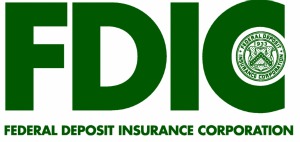Related Topics
Banking Panic 2007-2009 (1)
Mankind hasn't learned how to control sudden wealth, whether in families, third-world countries, or the richest nation in history. The world banking crisis of 2007 is the biggest example yet.
City of Homes
At first, there were limitless forests, but then the city burned down. After that, the "Red" city has long been built of brick. Philadelphia's masonry future is unknown, but it won't be wood.
Helping the home owner

|
| FDIC LOGO |
The Treasury's lender/investor support programs may have stopped October's (2008) bank-run and foreclosure panic. But it is generally agreed the crisis would not bottom and turn around until a way is found to slow the fall in house prices, the root cause of the housing crisis.
Both the City of Boston and the FDIC (at IndyMac, which they now run) are trying to address the mortgage uproar at its source: the homeowner, in trouble after paying too much for a house. Cheap mortgages tempted him to overpay, so still deeper causes trace back to Far Eastern prosperity, supported by a Chinese currency pegged too low in order to stimulate exports. These grander visions will probably be topic of the November 15 monetary summit.
Meanwhile, Boston has dozens of blocks of foreclosed houses. That city is attacking its local problem from two directions: (1) matching up 1st-time home buyers with homeowners in distress and (2) working with mortgage servicers to adjust troubled mortgages. In both cases, the objective is to keep the houses occupied and out of foreclosure. But if new home buyers again pay too much for the house, the problem is not entirely solved.
Remember, there are three elements to a mortgage: principal, interest rate and term.
Adjusting the principal is currently off the table but efforts are being made to fix and lower the interest rate and lengthen the term so resulting payments do not exceed 38% of gross monthly income. Sometimes this can't be done and the homeowner loses the home. But it helps quite a number of people.
Interest modification is resulting in mortgage terms of 40 or 50 years. That sounds almost like indentured servitude but at least such grass-roots efforts are starting to provide some relief for those who were swept into the housing bubble.
(It's interesting that one unintended consequence of securitization is that the counterparty to these negotiations is the mortgage servicer, not the original lender or the current holder. The effect of this is to reduce the natural resistance of a bank to lend more than it thinks the house is currently worth. Original lenders are a new mix of people; they sold the mortgage on to the current holders, who are a widely diffuse group of investors, both institutional and retail, who in most cases also cannot easily be identified. An exception is that in several cases where attempts were made to adjust the principal instead of the interest or the term, class-action lawsuits were initiated by several hedge-fund investors. That mainly explains why adjustments to interest rate and term are the current focus rather than principal. For obvious reasons, stock market short-sales seldom evoke the same response, at least from hedge funds.)
Originally published: Saturday, November 01, 2008; most-recently modified: Tuesday, May 21, 2019